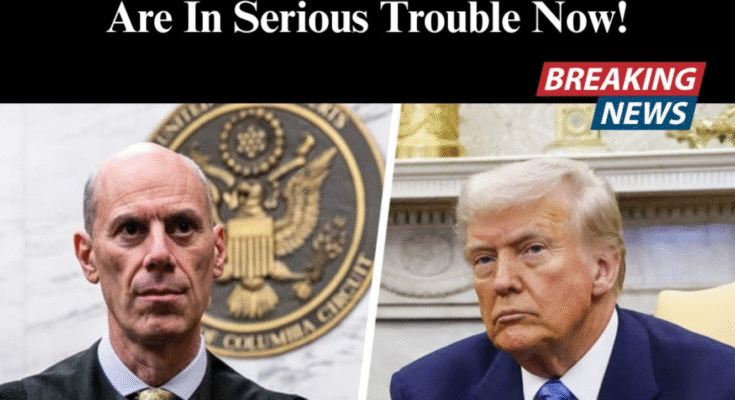Fox’s Jarrett Decries Judge’s ‘Troubling’ Decision to Halt Deportation Flights
A federal judge’s decision to halt President Donald Trump’s deportation directive aimed at Venezuelan gang members residing illegally in the United States has sparked outrage among conservatives, with legal analysts cautioning that it signifies a concerning increase in judicial authority. This backlash follows U.S. District Judge James Boasberg’s ruling last week, in which he issued a temporary restraining order preventing Trump from utilizing the Alien Enemies Act to deport individuals he has classified as members of a terrorist organization.
The ruling has drawn significant criticism, with some advocating for Boasberg’s impeachment. Fox News legal analyst Greg Jarrett characterized the decision as a clear violation of Supreme Court precedent. He expressed concern over Boasberg’s restraining order, arguing that it contradicts the Supreme Court’s review of President Harry Truman’s application of the Alien Enemies Act after World War II. Jarrett stated during a network segment earlier this week, “The Supreme Court affirmed that not only is the act constitutional, but it is also beyond the reach of judicial review by any judge.”
He elaborated, “When a president invokes this act, no judge or court, including the Supreme Court, can intervene, as Congress has granted the president exclusive political authority to make decisions regarding national security and foreign policy. As a lower court judge, Boasberg is obligated to adhere to the Supreme Court’s ruling and refrain from interference. Yet, he is audaciously disregarding established Supreme Court precedent.” In a column published online last week, Jarrett highlighted that a prior Supreme Court ruling confirmed the constitutionality of the Act and asserted that federal courts lack the jurisdiction to intervene when a president invokes it. The Alien Enemies Act allows a president to order the arrest and removal of “alien enemies” without a court hearing during times of declared war or in response to any “predatory incursion” against the United States.
A predatory incursion is generally understood as an entry into the United States for reasons that conflict with the nation’s interests or legal framework. This definition provides the president with significant discretion in fulfilling his primary responsibility to ensure the safety and security of the populace, he further emphasized.
In 1948, the U.S. Supreme Court affirmed President Truman’s application of the Alien Enemy Act (AEA), declaring the law constitutional (Ludecke v. Watkins, 33 US 160). Notably, the Supreme Court indicated that a president’s determination under this Act “precludes judicial review of the removal order,” meaning that judges cannot question the president’s decisions. The court elaborated that “the very nature of the President’s power to order the removal of all enemy aliens rejects the notion that courts may pass judgment upon the exercise of his discretion.”
The ruling from the Supreme Court endorsed what is known as the “political question doctrine,” which asserts that federal courts should not interfere in presidential actions that are fundamentally political, such as foreign affairs and national security. For instance, judges are not permitted to obstruct drone strikes or terminate intelligence operations.
“President Trump is employing every legal mechanism available to remove enemy aliens who represent an ongoing threat,” Jarrett stated, adding that the American public largely supports the mass deportation of illegal immigrants, particularly those identified as criminal or terrorist threats.
“Over two centuries ago, Congress recognized such dangers, which is why it enacted a comprehensive law granting the President exclusive authority to remove enemy aliens. A century and a half later, the Supreme Court reaffirmed this statute, stating, ‘This Alien Enemy Act has remained the law of the land, virtually unchanged since 1798,’” he further remarked.
Jarrett concluded by asserting, “Lower court judges are obligated to adhere to Supreme Court precedent. Based solely on this principle, Judge Boasberg’s hasty ruling is legally incorrect.”



